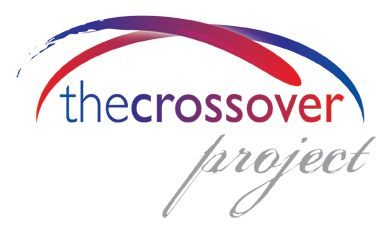by BRON BARKLEY
HERE IS THE THEME OF THIS DEVOTION:
This parashah records the personal revelation of God to Abram (later, Abraham) from his call to leave Ur to the destruction of Sodom. As a result, it is the paradigm of intimate relationship between God and his people. It is a template for our lives today.
This parashah covers chapters 12-17 of Genesis. They contain an explosion of recorded communication between God and the founding patriarch Abram and his matriarchal wife Sarai. God is still today speaking through these lives to humanity by way of this record.
In 12:1 the bible records that God spoke to Abram, saying,
LECH L’CHA
[Go for yourself (literally, “to yourself”), viz. GET OUT!]
ME’AR’TZ’CHA U’MIM’MO’LAD’Te’CHA U’MI’BEIT AVI’CHA
[from your land / your country and from your relatives and your father’s house]
EL-HA’ARETZ ASHER AR’E’CHA
[to the land that I will show you]
The parashah then records the obedience of Abram and Sarai and their migration into Egypt and the affair with Pharoah.
In chapter 13, they return to the land of promise and separate from Lot. Then God repeats his promise to Abram after he separates from his nephew, who takes the way that appeals to his eye. Abram, however, remains in the mountains where he has built and altar to God and continues in the function of an intercessor.
In chapter 14 comes the captivity of Sodom and, along with it, Abram’s nephew. Abram and his private army overtake the armies that overwhelmed Sodom and recovers Lot and his family. Abram refuses to accept his personal share of the booty of war “Lest the king of Sodom boast, saying, ‘I have made Abram rich.’”
Then Abram gives a tithe of all the spoils of his conquest to King-Priest Melchizedek in Salem (Jerusalem) and receives blessing from the Eternal Priest of the Most High God. (See Psalm 110 and the book of Hebrews).
In Chapter 15 is the covenant between the parts that is the foundation of the Eternal Covenant of Redemption in the blood of the Son of God. This covenant operates by faith in the atonement that God has provided in himself. (See Romans 4 and all the pertinent passages.) It precedes circumcision and it precedes water immersion.
In Chapter 16 is the matter of Hagar and Ishmael. In all these passages God speaks to Abram as a man would to his friend.
Then in Chapter 17, God appears to Abram when he was 99 years old, and says to him,
ANI-EL SHADDAI
[I AM GOD-ALMIGHTY (I AM God-The All-Sufficient Nourisher)]
HIT’HAL’LEICH LIF’AH’NEI
[Cause yourself to walk before my face / in my presence / in my sight]
VEH’YEIH TAMIM
[And be perfect / complete / entire / properly fitted]
And in this chapter is the dialog between God and Abram and between God and Hagar. (Abram was 86 years old when Hagar bore Ishmael to him so that Ishmael was at bar-mitzveh age—responsible maturity—when God gave the promise of the Seed to come through Sarai. Thus, it was as a jealous but responsible man that Ishmael mocked Isaac. And here is the pattern laid down of the parable of the Father and his Two Sons—the parable of The Prodigal son (Luke 15). If so, then there is hope for Ishmael when he comes to himself since Isaac is The Heir of Promise, as it is written, “the elder [according to the flesh] shall serve the younger [who in the spirit is preferred before the child of the flesh]. Genesis 25:23; This is a pattern that replicates throughout the bible.)
Let us learn from this that God will have a direct and personal relationship with us. We are to walk with God face-to-face in the spirit. Jesus is “IMMANU’EL”—God WITH us. Let us not settle for a distant relationship with God.




